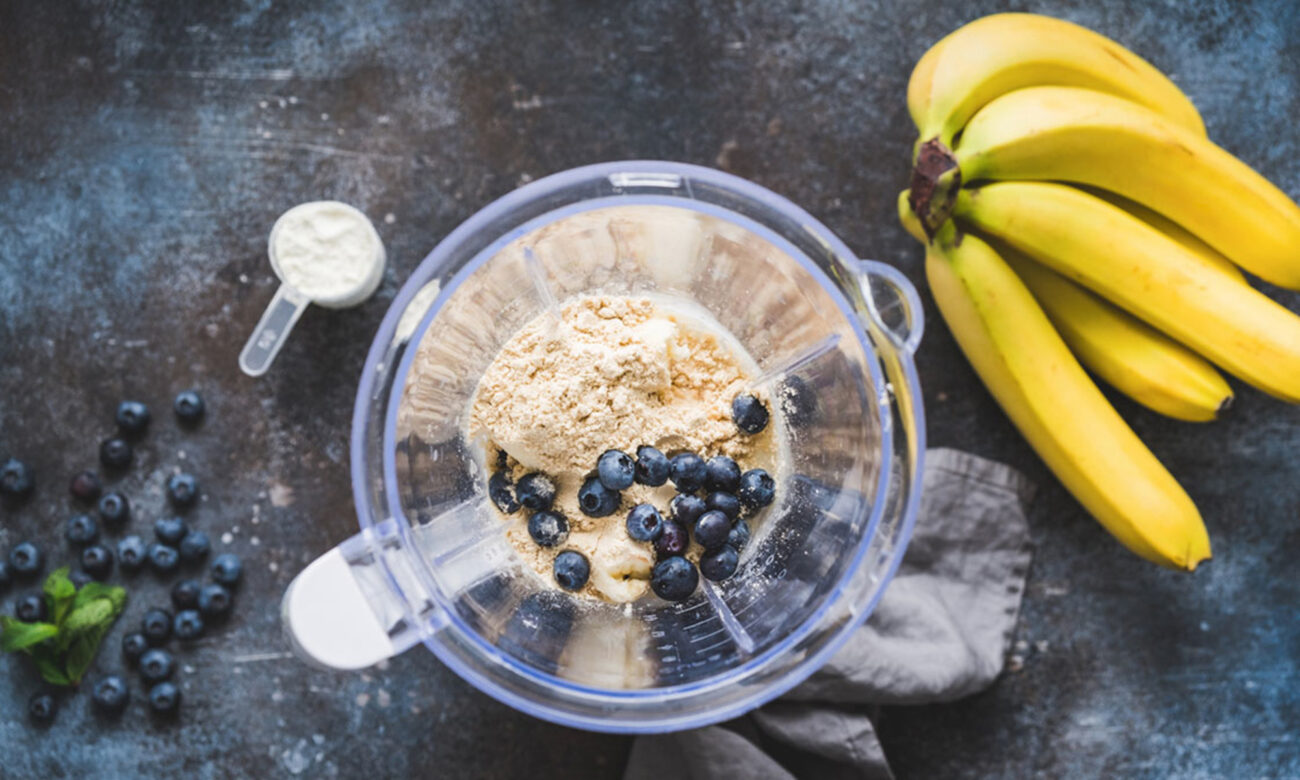Blog
5 Supplements That Could Disrupt Your Poop Schedule

- Some supplements can affect bowel regularity by slowing things down or speeding them up.
- Common supplements that affect your poop include iron, magnesium, calcium, fiber and probiotics.
- Drink plenty of water to prevent constipation, especially when taking a fiber supplement.
Your bowel health is important—including your poop schedule. While many things can affect your bowel habits, one often-overlooked culprit is supplements. They can be helpful in filling nutrient gaps, but they can come with unwanted side effects, such as a change in your bowel movements.
Depending on the supplement, some can make your digestive system feel sluggish and slow, while others may speed things up too much. “If your bathroom habits suddenly change after starting a supplement, it’s worth checking the label,” says Alyssa Simpson, RDN, CGN, CLT. To help you navigate your supplement options, we asked gut-health experts to share which supplements may impact your regular bowel habits.
1. Magnesium
Magnesium is an essential mineral that supports our body in many ways, such as energy production, supporting bone health and keeping your heart in tip-top shape. While there are many foods that are rich in magnesium, adding a magnesium supplement to your daily routine can be helpful for some people. “Magnesium is commonly taken to help with sleep, migraine prevention and restless leg syndrome,” says Shilpa Mehra Dang, M.D., who’s double board-certified in gastroenterology and internal medicine.
However, some magnesium supplements can interfere with your poop schedule. Per Dang, “It also acts as a laxative—it can increase the frequency of stool, as well as soften the consistency. At higher doses, it will lead to diarrhea, as well.” According to Julie Balsamo, M.S., RDN, magnesium helps draw water into the colon, which is why it can relieve constipation in small doses but could also cause loose stools. To avoid loose stools or diarrhea, she recommends avoiding higher doses of magnesium citrate and magnesium oxide, which can lead to these unwanted effects.
2. Iron
One supplement that all our experts warned could interfere with your poop schedule was iron. Typically, iron supplements are used to treat iron-deficiency anemia—a condition in which your body’s iron levels are too low, causing symptoms like fatigue and dizziness. Unfortunately, this supplement is also associated with gut troubles. “The most common medications I see causing issues are iron supplements, which can lead to constipation by slowing gut motility and making stools harder, especially if they’re not balanced with enough fluids or fiber,” explains Ritu Nahar, M.D., a board-certified gastroenterologist.
Fortunately, there are different forms of iron supplements you can try that may be easier on your gut. “If constipation occurs, consider switching to a gentler form, such as ferrous bisglycinate,” recommends Balsamo. Taking iron supplements with food or splitting it into smaller doses throughout the day can also help keep constipation at bay.
3. Calcium
Calcium isn’t just for strong bones—it plays a key role in muscle contraction, nerve signaling and blood clotting. For those who have trouble meeting their calcium needs from food alone, supplements can help fill the gap. However, if your diet is low in fiber or you’re not drinking enough fluids, calcium supplements could disrupt your digestion. That’s because calcium slows down gut motility, meaning stool moves more slowly through your digestive system. This can lead to constipation, especially at higher doses. It can also reduce the amount of water available to soften your stools, resulting in hard, dry or difficult-to-pass poops.
4. Probiotics
Probiotics are live microorganisms or “good bacteria” that are associated with improved gut health. While you can find them in fermented foods like yogurt or kefir, some people prefer the assurance of taking probiotics in supplement form. As research linking gut health with chronic disease prevention continues to grow, more people are adding probiotics to their supplement routine. While some people find that probiotics improve their bowel regularity, others may be more sensitive to probiotics. According to Marcie Vaske, M.S., LN, CNS, “Probiotics can also cause loose stools. This can occur due to the rapid shift of gut bacteria, sometimes causing short-term diarrhea or bloating, especially if starting with high doses.”
5. Fiber
Many people reach for fiber supplements for constipation relief—but they’re not a cure-all. In fact, for some, fiber supplements can actually worsen constipation. While fiber supplements can help with constipation by bulking up the stool and speeding up its movement through the digestive tract, overdoing it can have the opposite effect. This is especially likely if you start taking too much too quickly or don’t drink enough fluids.
Hydration is key when increasing your fiber intake, whether from supplements or food. Fiber works by drawing water into the digestive system to soften stool and support regularity. Without enough water, added fiber can actually lead to drier, harder stools, making the problem even worse.
Other Tips for Supporting Gut Health (and Regular Poops)
Now that you know what supplements may interfere with your poop schedule, here are some other tips from our experts on how you can further support your gut health:
- Chew Your Food Well: Most of us are guilty of multitasking while eating, but not chewing your food could lead to tummy troubles. “When you rush and barely chew your food, it takes longer for your body to break it down, which can slow down the whole digestive process, including how fast your bowels move,” says Simpson.
- Don’t Ignore the “Urge”: While it can be tempting to wait until a more convenient time to go No. 2, ignoring your body’s signals can backfire. According to Dang, “It is important to listen to your body and to pass a bowel movement when you feel the urge. Holding stool frequently can lead to worsening constipation.”
- Move Your Body: “Regular physical activity also plays a big role in keeping the digestive system moving smoothly,” says Nahar. Movement helps stimulate the muscles that line your digestive tract, supporting healthy digestion. Fortunately, it doesn’t have to be intense—something as simple as walking after meals has been shown to get things moving.
- Increase Diet Diversity: Adding variety to your diet doesn’t just beat mealtime boredom, it’s great for your gut health too. “It is best to eat a wide variety of whole, real foods; including proteins, vegetables, fruit, grains and healthy fats. Our microbiome changes daily with the foods we consume, so this is a must for a healthy gut,” says Vaske.
Our Expert Take
Even if you follow a healthy diet, supplements can help fill in nutrient gaps when needed. But keep in mind that some supplements may affect your digestion and interfere with your poop schedule. For example, calcium or iron may slow things down and cause constipation. On the other hand, higher doses of magnesium or probiotics can lead to loose stools. When in doubt, check in with your health care provider before starting a new supplement, especially if you’re worried about changes to your bowel habits.












